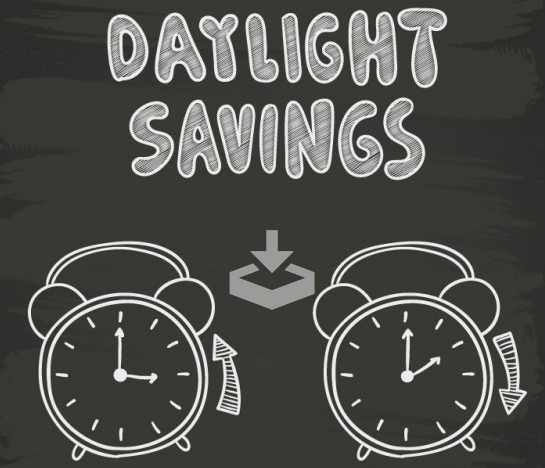Impact of Daylight Savings on Productivity
“Fatigue makes cowards of us all.” Vince Lombardi
 Many people wonder whether the energy savings for which daylight savings time was introduced are really worth the negative impact on health. Especially in the late Winter / early Spring when we lose an hours sleep. The practice was first suggested by Benjamin Franklin in an effort to economize on candles and to maximize daylight use during the warmer months.
Many people wonder whether the energy savings for which daylight savings time was introduced are really worth the negative impact on health. Especially in the late Winter / early Spring when we lose an hours sleep. The practice was first suggested by Benjamin Franklin in an effort to economize on candles and to maximize daylight use during the warmer months.
Daylight Savings Time was first instituted at the time of World War I, between 1916 and 1918, with the U.S. instituting after many other countries. It was not received very well by most people and it ended up being repealed in the U.S.
It was reintroduced during World War II. At that time, health science was not as advanced as it is today. We now have had over 50 years to ‘test’ the concept and many health professionals feel that it should be scrapped as it is counter-productive at best and highly detrimental at worst.
Does the evidence support scrapping Daylight Savings?
The evidence appears to support those who are in favor of scrapping Daylight Savings. The California Energy Commission’s Demand Analysis Office did a study that concluded that Daylight Savings had “little or no effect on energy consumption in California.”
Our bodies operate on certain rhythms which determine our sleep and wake patterns. When we forcibly adjust our wake times, this has an impact on our overall wellness. It doesn’t matter whether we are getting more or less sleep. Any change will create a ripple effect.
The most notable effect is that we have trouble adjusting to the new sleep regimen and consequently end up feeling tired during the day for sometimes weeks after the change.
Not only that, but when we do sleep, our sleep is not nearly as restful as it would be if we were allowed to sleep according to our own natural cycles. As a result, research has shown that we end up sleeping an hour less per day even when the clock moves back.
Not surprisingly, there are very significant health implications. We all know that when we are not sleeping well or not getting enough sleep, we tend to be more stressed and less able to handle the ups and downs of life with equanimity. According to the American Journal of Cardiology, after the March Daylight Savings change, there is a spike in heart attacks.
There are also an increase in road accidents due to driver error during the week following a time change.
Christopher Barnes, of the U.S. Military Academy at Westpoint, supports scrapping Daylight Savings and has the evidence to back his decision. A study he did showed that not only do work related accidents increase, but also the severity of the accidents increases after the time change. His study documented a 5.7% increase in work injuries and a 67.6% increase in lost work days as a result.
Fatigue makes us more prone to making bad decisions and it makes us a lot less productive. A study featured in the Journal of Applied Psychology following a time change we become a lot less productive. spending more time surfing the internet looking busy in the morning than actually working. This isn’t surprising as fatigue makes it more difficult to concentrate. Other studies have shown a decrease in SAT scores.
A 2013 study has pegged the costs related to Daylight Savings Time in the U.S. at approximately $434 million.
What can you do to compensate for Daylight Savings induced fatigue:
– Set your clocks to change on Saturday thereby giving yourself an extra day to acclimatize
– Do not schedule important meetings for the Monday following the time change
– Do not engage in dangerous work or recreational activities on the Monday following the time change
– Set your schedule for Monday at the end of the previous work week with tasks that do not require a huge amount of focus and concentration. This will allow you to steadily work through and complete tasks without too much time being wasted. Keep your more demanding tasks and meetings for Tuesday or Wednesday.
– Get some exercise. Exercising will help your body combat the symptoms of fatigue and release serotonin which helps improve your mood.
– Go to sleep a little earlier for the next few days following the time change.
More reading:
https://www.businessinsider.com/economic-and-health-effects-of-daylight-saving-time-2014-3
https://www.sott.net/article/305500-Its-time-to-do-away-with-daylight-saving-time
https://www.cbsnews.com/media/daylight-saving-time-affects-your-health/




